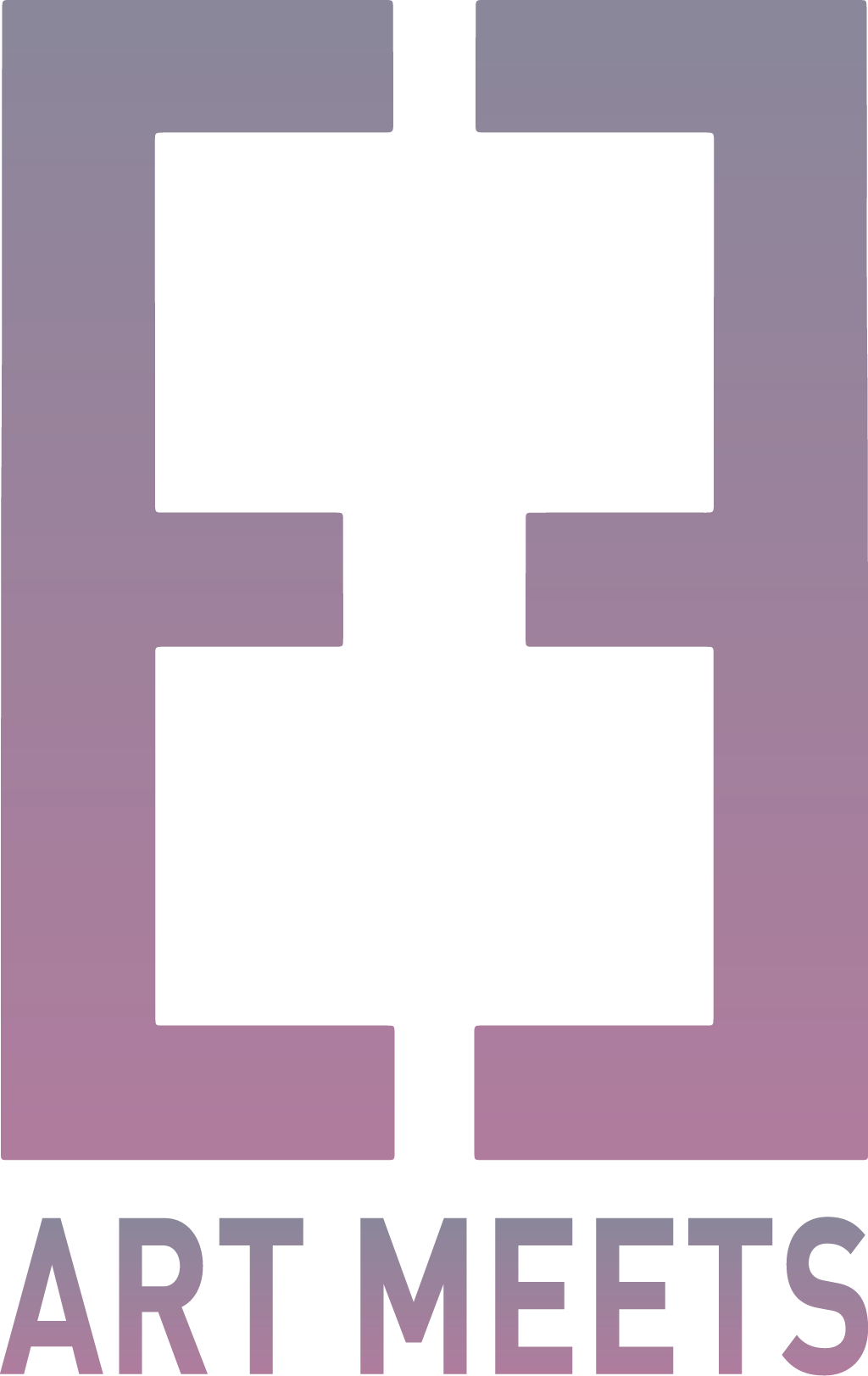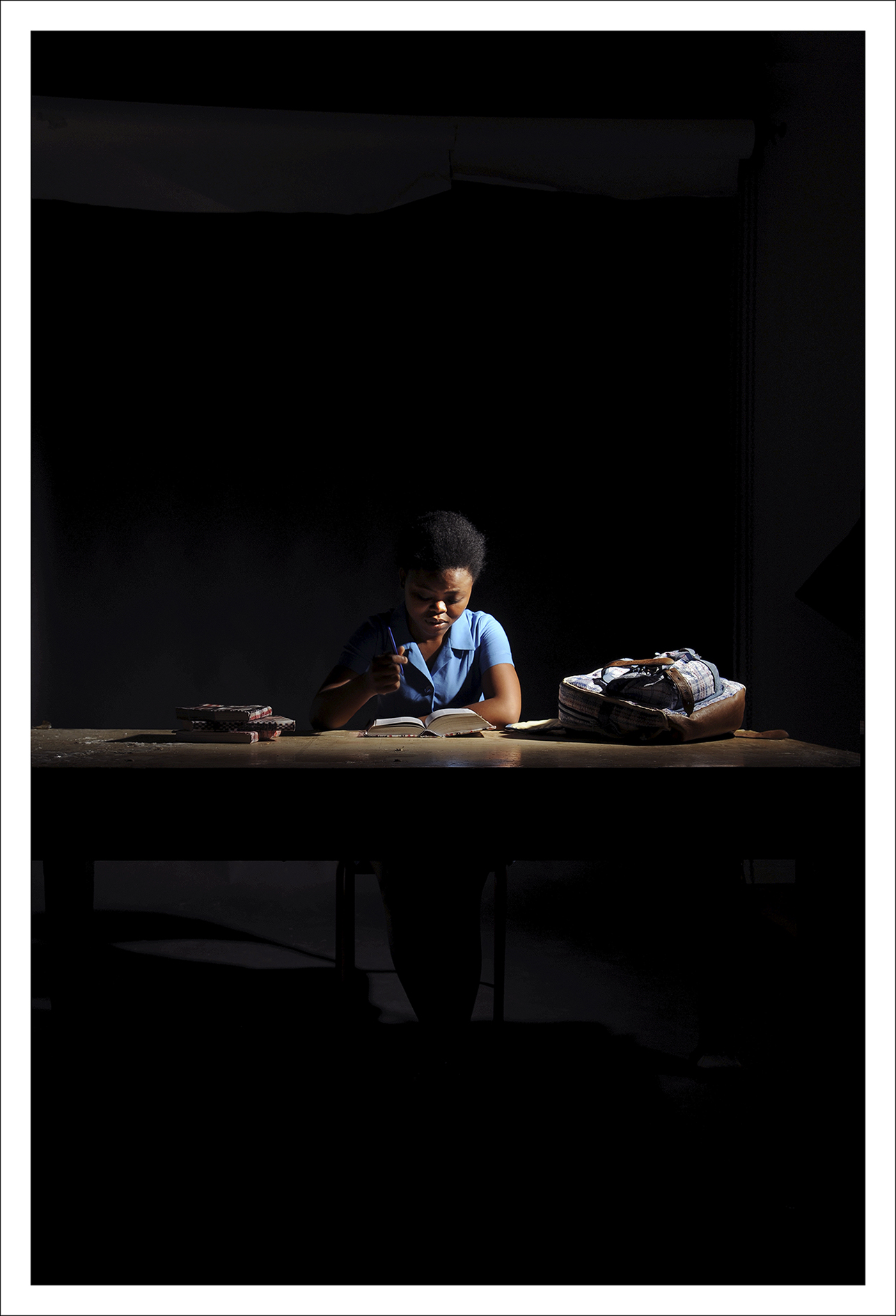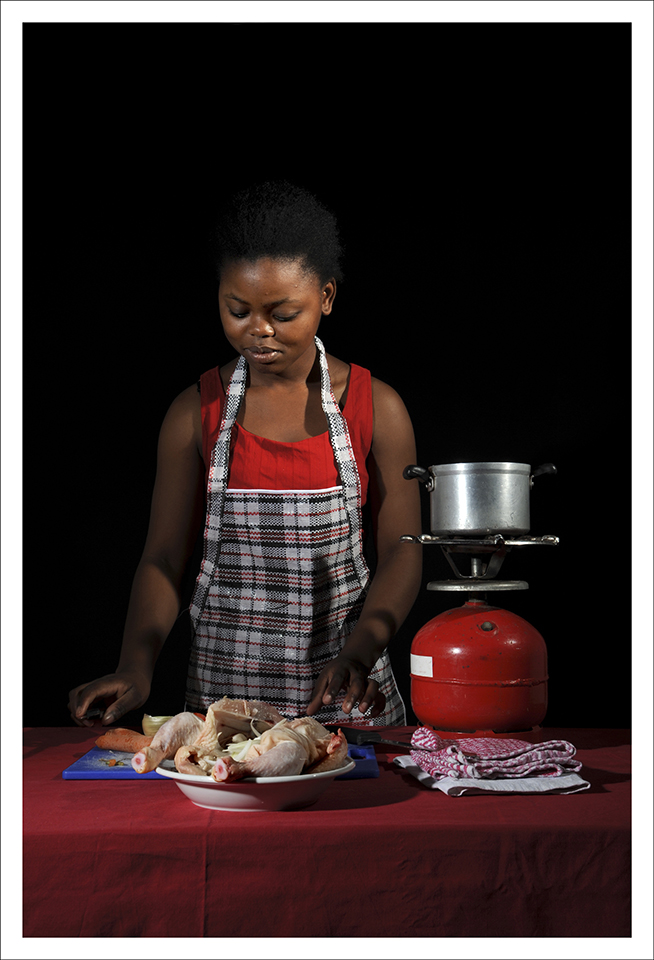Nobukho Nqaba
Click here to view Nobukho's performance work for OFF THE WALL [2015]
Ndiayayekelela (2016) opening at AKAA in November
Art meets Camera are pleased to present a solo show by South African artist Nobukho Nqaba at
AKAA (Also Known As Africa) Art Fair- the first contemporary African art fair to take place in Paris,
France. (11-13 November 2016).
Following her hugely successful series Umaskhenkethe, Nqaba’s new body of work, Ndiyayekelela (Letting go) embodies the artist’s struggle to come to terms with the loss of her father - a migrant worker in the rural Eastern Cape, where Nqaba was raised. Using symbolic materials that recall her past, Nqaba battles with feelings of guilt, fondness and confusion - reinforcing her physical presence. The artist’s movements - together with the carefully selected materials - conjure up old memories, bringing them to life through photography.
The workers overalls and blankets (used in poor communities) tell the story of many South Africans - defined by their role in the working class. Much like the bags in 'Umaskhenkethe Likhaya Lam', the overalls and blankets represent the impermanence of a homespace, and the search to find comfort in the familiar: to carry a part 'home' with you, and to come to grips with the burden of it's weight. Continuing the conversation on migrancy, Nqaba physically confronts and challenges (the value of) the materials, which in turn take on their own agency.
In addition to her solo exhibition, Nqaba presents a performance piece in collaboration with fellow South African artist, Siwa Mgoboza. Sobabini (meaning Both of us) plays out as an extension of her new work, and exploring evolving African narratives, visions and voices. In Sobabini meaning Both of us, Nqabaand Mgoboza explore their respective artistic ouvres and through a conversation in movement are able to unravel and transcend the boundaries of individual identity.
The debut performance took place at AKAA at the Carreau du Temple, Paris, France on 12 November 2016 at 1pm.
Umaskhenkethe Likhaya Lam
edition of 10
archival ink on hahnemuhle paper
29 x 21 cm
Unomgcana or Umaskhenkethe is the Xhosa word for the plastic mesh bag, which is made in China. Unomgcana means 'the one with lines' and Umaskhenkethe means 'the traveler'. In South Africa the bag is more commonly known as China bags, Zimbabwe bags, Khumbulekhaya bags or Mashangaanbag. These bags are ubiquitous and go by many names: the 'Ghana must go home' bag in Nigeria, Bangladeshi bag in the UK, Turkish bag in Germany, Mexican bag in the US and Guyanese Samsonite in the Caribbean. These alienating names reveal something of the anxiety expressed towards the carriers of these bags in the communities they relocate to. These bags have become global symbols of migration - not only across borders but also within countries. They are objects that carry a home and act as a means of survival for one who does not have much.
The bag is a personal reminder of my own migration within South Africa. I have experienced many of the challenges of a migrant and it took me a long time to adjust to life in the places that I have moved to. I grew up surrounded by Unomgcana. I remember when my mother (who worked in Grabouw) would visit our family in the Eastern Cape during the off season. She would bring umphako (treats for the family), which often included a half cooked chicken stuffed with raw onions, lots and lots of apples, and a few items of clothing. During school holidays I would travel to Grabouw and my father would pack my belongings in unomgcana. The bag was an everyday object used by many people travelling from the Eastern Cape to Cape Town. At the Langa bus terminal massive nomgcanas would be packed, with peoples names written onto them to avoid them being lost or mistaken.
This series of photographs reflects on my memories of growing up using the bag. For me it symbolizes a home. I have a love-hate relationship with the bag because for me it is a symbol of struggle - growing up as part of a family with my mother as the breadwinner - we often did not have enough to live on but tried to maintain a stable home. At the same time it reminds me of where I come from and gives me more drive to succeed in life. Unomgcana has always been my companion, throughout my childhood life and journeys. It has been my comfort and my home.
About the Artist
Nobukho Nqaba was born in Butterworth, Eastern Cape (1992) and moved to Grabouw (1998) where she attended a farm school for three years. Nqaba graduated from Michaelis School of Fine Art (UCT) in 2012. In the same year she was awarded the Tierney Fellowship, mentored by Svea Josephy and Jean Brundrit. Nqaba went on to complete her postgraduate diploma in teaching (also at UCT).
*Umaskhenkethe Likhaya Lam was completed in Nqaba's graduate year at Michaelis School of Fine Art (supervisors: Jean Brundrit and Svea Josephy)



















